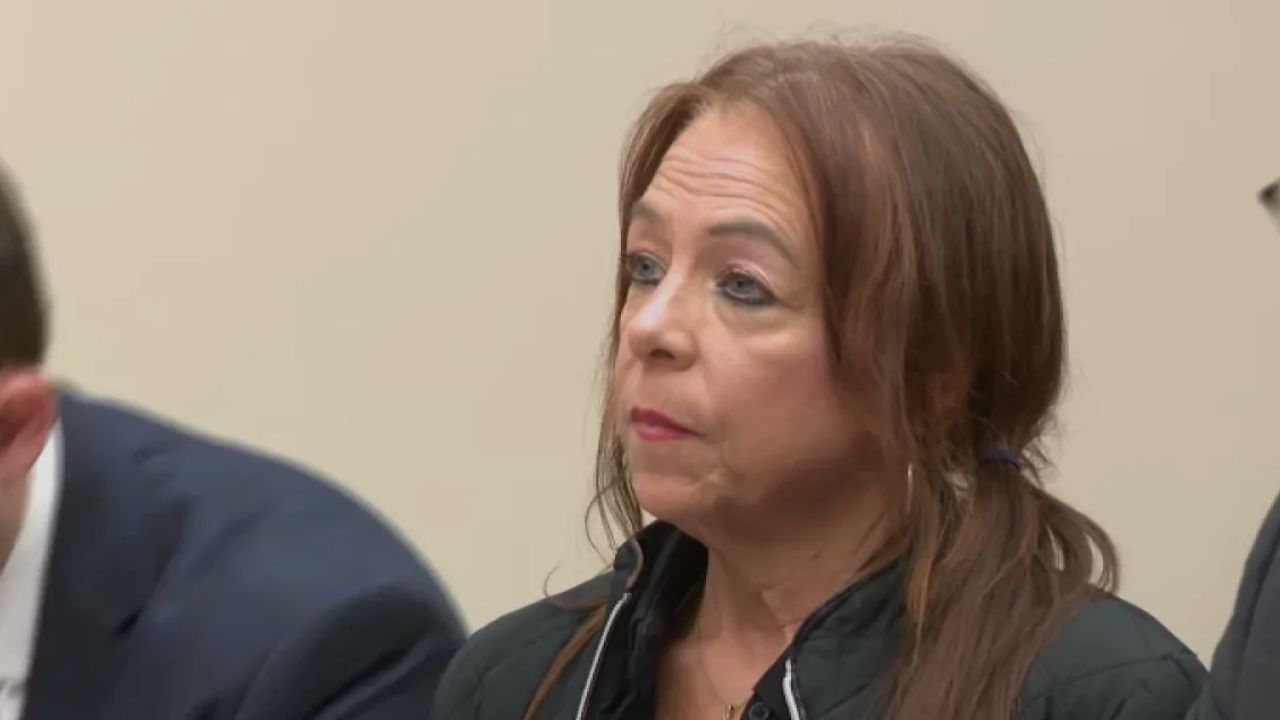Waterbury, CT – A judge recently ruled in favor of Kimberly Sullivan, the woman accused of holding her stepson captive for over two decades, allowing her legal team to access the alleged victim’s alias, address, and medical records amid ongoing court proceedings.
This decision has stirred significant attention in this high-profile case, as thoughts clash between constitutional rights in criminal defense and concerns for the safety and privacy of the victim, who endured prolonged abuse and captivity.
Legal Access Granted After Heated Debate
On Friday, during a Waterbury court session, Sullivan’s defense successfully argued that access to the stepson’s personal information is a fundamental constitutional right. Sullivan, arrested in March and out on a $300,000 bond, faces charges including kidnapping, assault, and unlawful restraint.
“We argued to the court that this wasn’t about his feelings, but about the rules of procedure and the rules of practice,” said defense attorney Ioannis Kaloidis. “In the Constitution, it is standard in every criminal case to disclose the name and address of witnesses, especially the accuser.”
- The judge approved the motion to disclose the alias and address of the stepson.
- Sullivan’s legal team was also allowed access to the victim’s medical records, with strict conditions.
- The victim’s attorney was restricted from discussing anything beyond plea and sentencing in court.
Victim’s Harrowing Escape and Condition
The alleged victim, identified only as “S,” escaped captivity in February by setting a fire in his room. Authorities discovered him severely emaciated, weighing about 68 pounds at 5-foot-9, after reportedly being held in a tiny locked room and suffering decades of starvation and neglect.
The case details have shocked many and prompted ongoing debates about victim protection versus defendant rights.
Protection Concerns Vs. Constitutional Rights
The state initially sought to protect the victim by withholding his alias and address, citing mental health and safety risks. Prosecutors likened the situation to protecting domestic violence victims living in safe houses.
“The victim is terrified of this defendant,” said Donald Therkildsen, supervisory assistant state’s attorney. “This is no different than a domestic violence victim being at a safe haven home. We certainly wouldn’t disclose the address of a safe haven home to a domestic violence abuser.”
Despite these concerns, the judge ruled in favor of the defense’s constitutional arguments. However, access to medical records was permitted only under conditions ensuring confidentiality and restricted viewing.
Read Also: Authorities: Foster Parents Killed, North Carolina Teen in Custody for Double Murder
Next Steps and Court Proceedings
- The judge denied a motion filed by Sullivan’s attorneys seeking removal of her GPS tracker, though it may be revisited later.
- The next hearing is scheduled for December 19.
This developing case continues to raise important issues about balancing victim rights with a defendant’s legal protections. For detailed coverage and ongoing updates, visit NBC News.
Your Thoughts?
What do you think about the judge’s decision to grant Kimberly Sullivan access to the victim’s identity and location? Share your thoughts and join the conversation in the comments below!


 by
by 

